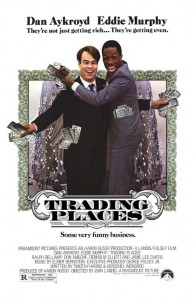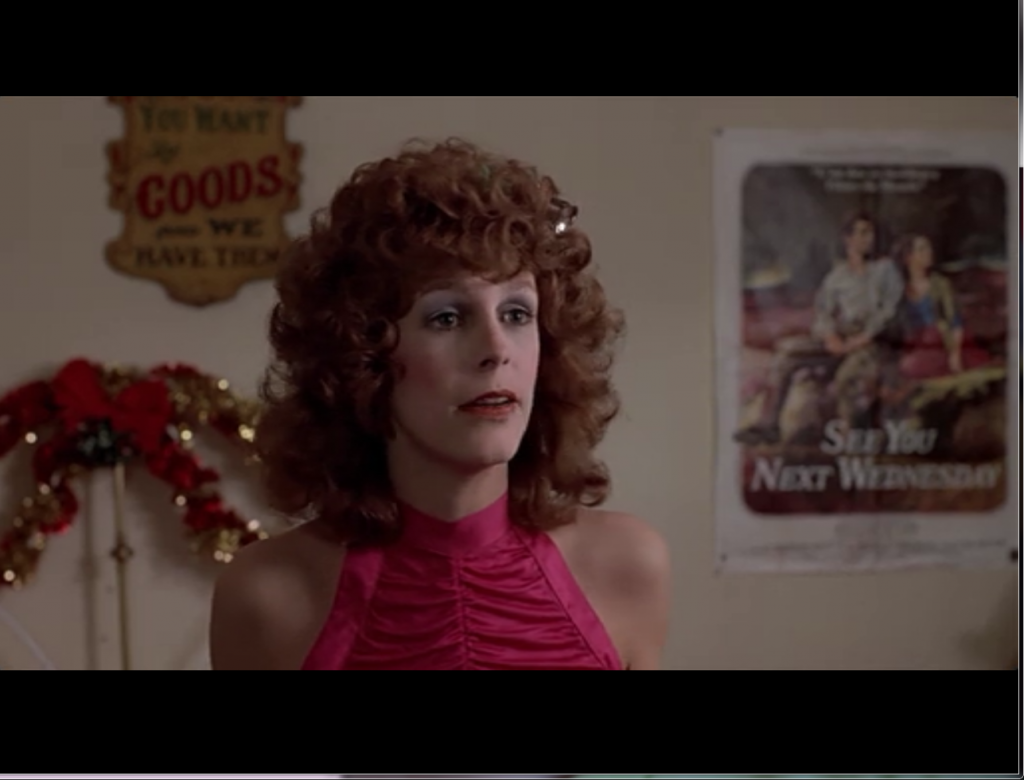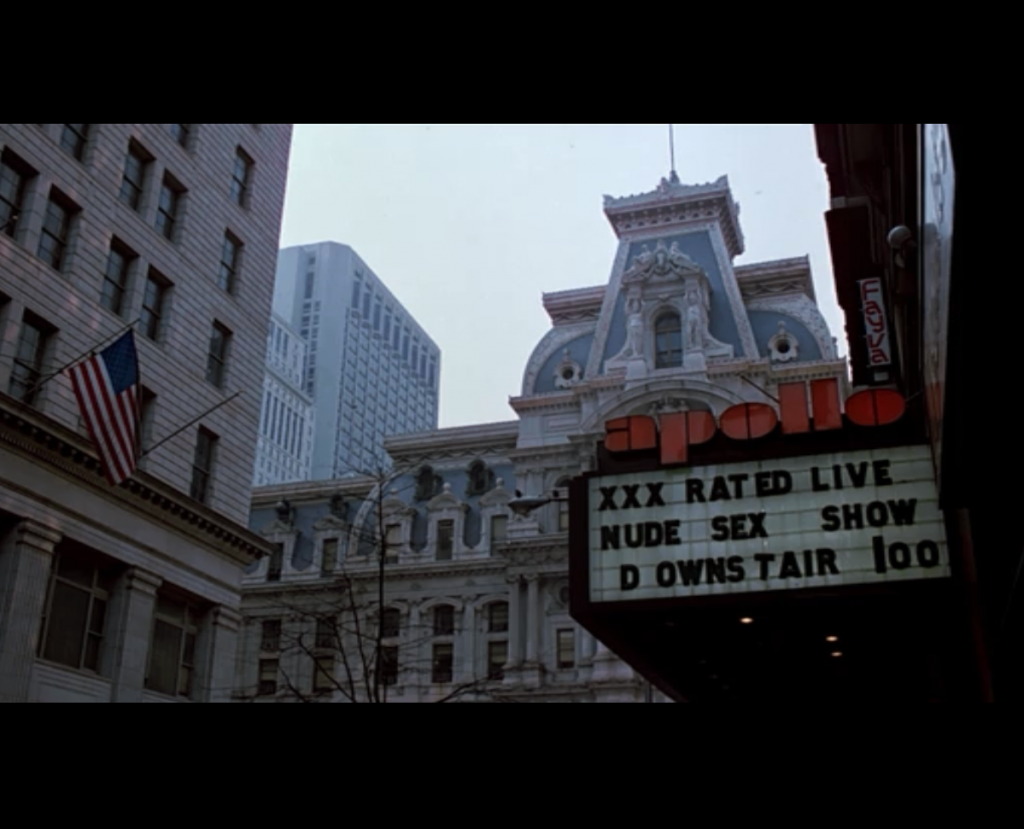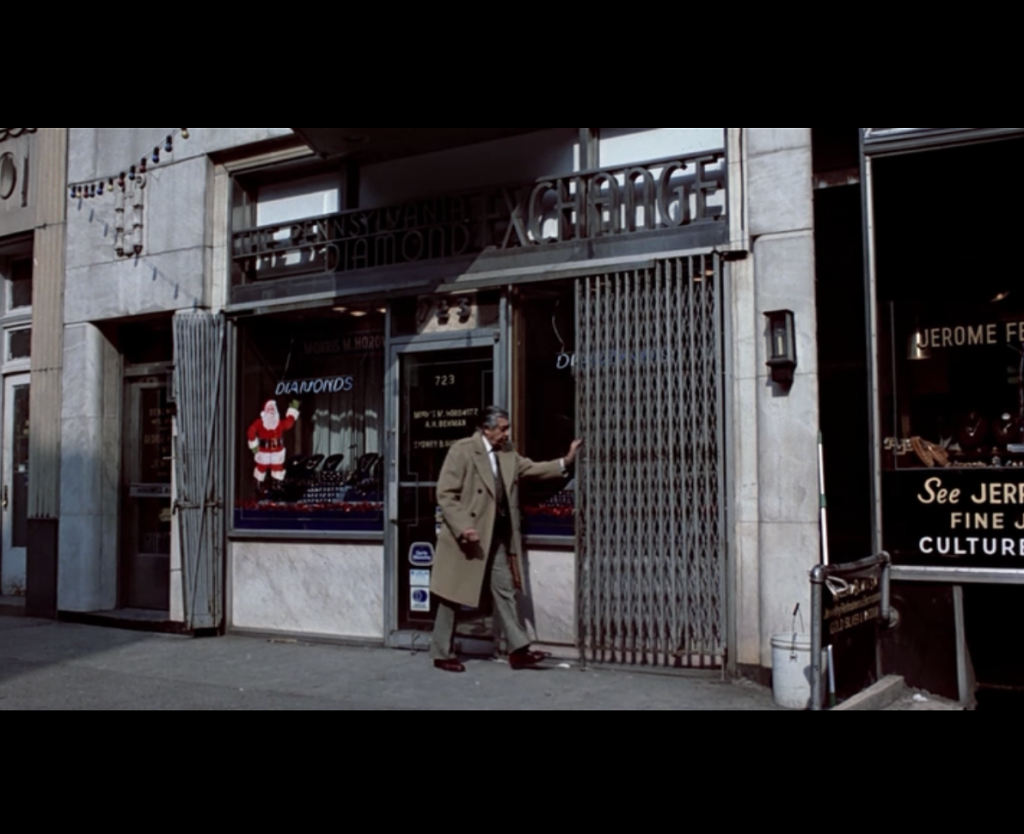Trading Places (1983)
“Breeding, Randolph — same as racehorses; it’s in the blood.”
|
Synopsis: |
|
Genres, Themes, Actors, and Directors:
Response to Peary’s Review: The cast members here are all at the top of their game. Murphy (early in his career) is both infectiously charismatic and consistently hilarious, while Aykroyd is appropriately priggish as his entitled yet ultimately sympathetic foil. Supporting the comedic protagonists are Jamie Lee Curtis (playing an archetypal “kind-hearted prostitute”), who projects just the right mix of moxie and casual sexiness; Denholm Elliott (as the distressed butler bullied into turning against his employer, Aykroyd), who invests his minor role with significance; and Bellamy and Ameche (how fun it is to see these veterans on screen together!), who project hiss-worthy villainy. [Kudos to the screenwriters for not shying away from presenting their venally racist attitudes.] Despite the silly appearance of men in gorilla suits late in the game (a personal pet peeve with comedies), Trading Places remains a “true crowd-pleaser” and a cult favorite, one you’ll almost certainly enjoy revisiting. Redeeming Qualities and Moments:
Must See? Categories
Links: |






One thought on “Trading Places (1983)”
Not must-see.
I had not seen this in a long time and had largely forgotten it. I was, therefore, anticipating a rather enjoyable return visit. Seeing it again, I find it mildly diverting in a slick, commercial way – which is fine but, for my taste, it’s a little tame. Of course, the fact that it reads as tame to me is more or less perfectly in keeping with its Capra and Sturges influences. And that kind of homage was apparently enough for mainstream audiences upon its release, since it was a huge hit (I believe). Many average ffs will be less demanding on the film than I have turned out to be (and for those in that camp, this would therefore be must-see stuff). I just personally wish those involved in the project had played it a little less ‘safe’. I would have been much happier if the material leaned more toward black comedy. (And I think it would have created more of a tension if director Landis had encouraged his cast to play the situation as real instead of as a cartoon. Part of the charm of comedies of this type is most often found when we are more invested in the characters because they are being presented as real in a very unreal situation.)
That said, I can’t really fault the actors – who all still turn in delightful performances.
There is one existing element in the script that does have a satisfying dark edge: the fact that two filthy rich men decide they can toy with anyone on a whim…and add huge insult to injury by doing it all for a dollar. That’s evil. (Not that Bellamy and Ameche *play* it up as evil, but that’s an example of how effective the film might have been, had things been painted a little more black.)
I also think the film is a little long: the exposition seems a little slow and the wrap-up seems to go on more than it should. All told, it’s a pleasant way to spend two hours but it doesn’t stand-out to me as sharply and memorably as some of the classic screwball comedies that apparently inspired it.